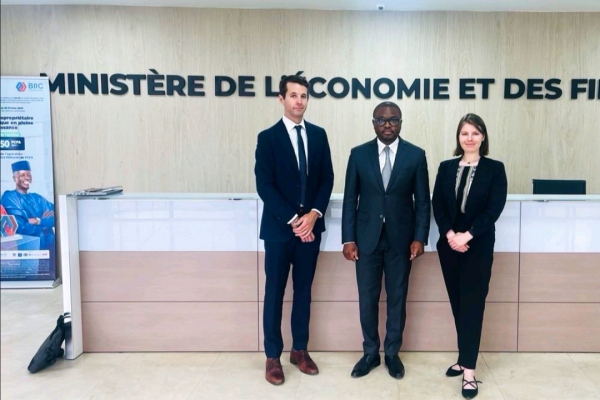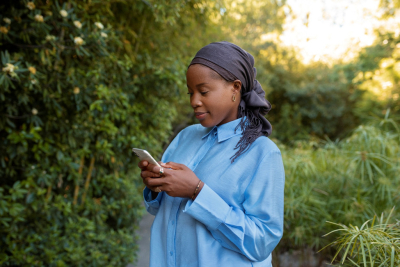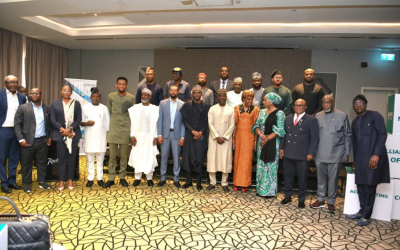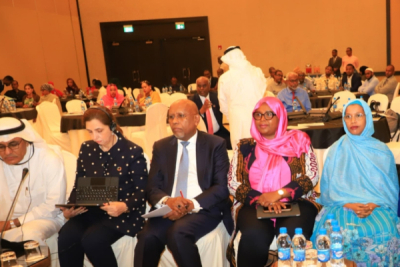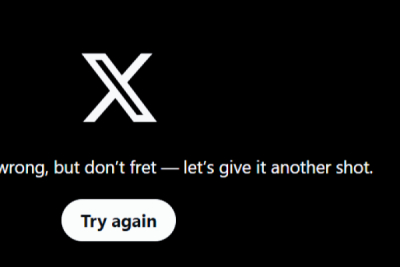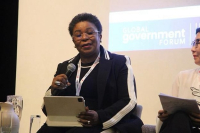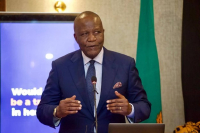
Public Management (481)
The digitization of public services is underway in several African countries. In Mali, authorities launched a digital platform in January to improve access to judicial services. In February, they are taking another step in the same direction.
Malian authorities have approved plans to establish a National Agency for the Security of Civil Status Documents, aiming to digitize these records and improve their reliability. The draft legislation was adopted during a Council of Ministers meeting last Wednesday and will be submitted to the National Assembly for approval before implementation.
The new agency will be tasked with strengthening the security of civil status documents by implementing electronic solutions for their design, production, identification, and authentication, according to an official statement. It will also support the Civil Status Data Processing Center, which currently faces challenges including poor coordination among stakeholders and weak document security.
This initiative aligns with Mali’s broader strategy to leverage digital technology for modernization and economic growth. Several projects are planned for 2025, including expanding the government’s intranet network to 15 new regions, developing and deploying specialized administrative applications, and launching a digital literacy platform.
In January, Malian authorities launched a digital platform to improve access to judicial services. The success of the new agency, however, will depend on the government’s ability to secure necessary resources and address challenges related to digital infrastructure and administrative staff training.
By Isaac K. Kassouwi,
Editing by Feriol Bewa
Beninese authorities have made digital technology a key pillar of the country's socioeconomic development. The government has recently begun searching for an expert to strengthen the development environment for digital public services.
The Beninese government aims to leverage Starlink’s space technology to improve Internet access in poorly covered areas and strengthen digital inclusion. This issue was one of three areas of cooperation discussed on Wednesday, February 5, during a meeting between Romuald Wadagni (photo, center), Minister of State for Economy and Finance, and representatives of U.S. company SpaceX, which operates the Starlink satellite Internet service.
Discussions also focused on developing innovative digital solutions for e-education and e-health—key drivers of social transformation—as well as enhancing connectivity for more effective border surveillance. “Digital inclusion is a key tool for addressing tomorrow’s challenges. This partnership illustrates our commitment to modernizing the country and reducing the digital divide for more inclusive and sustainable development,” said Wadagni.
This initiative aligns with the government’s vision of making “Benin the digital hub of West Africa” and using digital transformation as a key lever to accelerate economic growth. However, telecom adoption, particularly Internet use, remains limited.
According to the Regulatory Authority for Electronic Communications and Post Office (ARCEP), Benin had 8.5 million unique mobile subscribers, with a penetration rate of 67%. ARCEP estimates that by the end of 2023, the country had 7.0 million unique Internet users, representing 55.4% of the total population. The GSMA, the global association of mobile operators, reported that 3.8 million Beninese regularly accessed the Internet via mobile phones in 2023, accounting for 28% of the population.
Bridging this digital divide offers numerous benefits for the population. “The adoption of digital technologies opens new avenues for development, whether by increasing the added value of existing agricultural resources, facilitating access to global value chains, improving education and healthcare, reducing transaction costs, or enhancing the efficiency, transparency, and governance of government services for citizens and businesses,” the GSMA stated in its report “Driving Digital Transformation of the Economy in Benin: Opportunities, Policy Reforms, and the Role of Mobile”.
While Starlink launched commercial operations in Benin at the end of 2023, discussions with the government are still preliminary. No agreement has been signed or announced, and it is unclear how residents in underserved areas would specifically benefit from any potential partnership.
By Isaac K. Kassouwi,
Editing by Sèna D. B. de Sodji
Reliable internet connectivity is crucial for economic growth, education, healthcare, and innovation, particularly in remote areas with scarce terrestrial networks. By connecting underserved people to the internet, Africa can accelerate digital transformation, ensuring that more communities can participate in the global digital economy.
Satellite communications provider Eutelsat has successfully met its Partner2Connect Digital Coalition pledge - backed by the International Telecommunication Union (ITU) - two years ahead of schedule. This milestone, announced on February 5, marks the connection of 1 million underserved people in Sub-Saharan Africa to high-speed satellite internet, reinforcing Eutelsat’s commitment to bridging the digital divide and supporting the United Nations' 2030 Agenda for Sustainable Development.
Eutelsat Group CEO Eva Berneke emphasized the milestone's significance, stating: “This achievement highlights our commitment to digital inclusion and underscores how we leverage cutting-edge satellite network solutions to meet the challenging demands for low-cost, high-availability, and trusted services in Africa.”
The achievement was made possible through Eutelsat’s Konnect Wi-Fi hotspots, powered by the EUTELSAT KONNECT satellite, which has delivered affordable, high-speed internet to remote areas where traditional networks remain inaccessible. Offering speeds between 5 Mbps and 100 Mbps, the service has enabled access to education, e-commerce, healthcare, and business opportunities.
Eutelsat’s initiative aligns with global efforts to expand digital access, particularly in Africa, where only 37% of the population is online according to ITU Facts and Figures 2023. By leveraging satellite technology, the company is bridging connectivity gaps, unlocking new economic and social opportunities, and empowering communities in the digital era.
As Eutelsat continues expanding its reach, this achievement sets a strong precedent for the role of satellite internet in accelerating Africa’s digital transformation.
Hikmatu Bilali
While the global digital economy continues to grow, broadband connectivity remains a major challenge in Africa, despite its vast potential to drive development and economic opportunities.
The Federal Ministry of Communications, Innovation & Digital Economy has launched the National Broadband Alliance for Nigeria (NBAN) to accelerate broadband development and bridge connectivity gaps nationwide. The initiative was unveiled on Tuesday, February 4, 2025, in Lagos, bringing together key industry stakeholders to discuss expanding broadband access, strengthening multi-sector collaboration, and driving digital inclusion.
Dr. Aminu Maida, Executive Vice Chairman of the Nigerian Communications Commission (NCC) in an address on behalf of Minister ‘Bosun Tijani noted that despite efforts to achieve 70% broadband penetration by 2025, existing infrastructure remains underutilized. “Many of the networks remain underutilised. In numerous parts of the country, the capacity of existing fibre infrastructure far exceeds the demand,” he said.
The NBAN aims to address these challenges by expanding access, promoting awareness, and increasing investments in broadband infrastructure. The government has set ambitious targets in its National Broadband Plan 2020-2025, including 25 Mbps minimum data speed in urban areas and 10 Mbps in rural areas, 80% population coverage by 2027, and 300–500% increase in broadband investments by 2027.
The initiative is expected to unlock economic opportunities, drive innovation, and enhance Nigeria’s digital economy, ensuring broader access to high-speed internet for millions. According to the World Bank Digital Progress and Trends Report 2023, access to high-speed internet can increase an individual's likelihood of employment by up to 13.2% and boost total employment per firm by up to 22%.
Hikmatu Bilali
Djiboutian authorities are stepping up initiatives to transform the country into a digital hub by 2035. This includes exploring support from other countries and international organizations.
Djibouti is ramping up efforts to implement its digital transformation roadmap, with the goal of becoming a technology hub by 2035. As part of this strategy, Mariam Hamadou Ali, Minister of Digital Economy and Innovation, met with representatives from the United Nations Economic and Social Commission for Western Asia (ESCWA) during a workshop on Monday, February 3.
In recent months, Djibouti has already engaged with several countries and international organizations, including the European Union, the International Telecommunication Union (ITU), India, and Qatar. Talks with Qatar have particularly focused on developing and strengthening cybersecurity partnerships.
The government's ambitions include expanding digital services, promoting ICT adoption, and creating a favorable investment climate for the private tech sector. However, Djibouti still faces challenges in its digital development.
According to the ITU, Djibouti currently ranks 17th in Africa out of 47 countries for ICT development, with a score of 61.6 out of 100. This marks a slight decline from 2023, when the country ranked 16th with a score of 63.6. Additionally, the United Nations e-Government Development Index (EGDI) places Djibouti in the "intermediate development" category, with a score of 0.2911 out of 1. On cybersecurity, the ITU classifies Djibouti in Tier 4 out of 5, grouping it with nations that demonstrate only basic government-driven cybersecurity initiatives.
International cooperation presents an opportunity for Djibouti to leverage the expertise of more advanced nations in digital transformation. However, most discussions remain at a preliminary stage, and it remains to be seen whether they will result in concrete agreements.
By Isaac K. Kassouwi,
Editing by Sèna D. B. de Sodji
Internet and social media shutdowns have become a trend in Africa during times of political or social unrest. These restrictions, often justified as necessary for security, raise serious concerns about freedom of expression and their negative economic consequences.
Residents of several Congolese cities have experienced disruptions to social media access, including TikTok and X, since Saturday, February 1. While no official statement has confirmed the restrictions, many believe they are linked to the tense situation in the country's eastern region and aimed at limiting information flow.
Disruptions have been reported in major cities, including Kinshasa, Goma, Bukavu, and Lubumbashi. Many users have been unable to connect to the platforms, while others have used virtual private networks (VPNs) to bypass the restrictions. NetBlocks, an internet monitoring organization, said data indicates a targeted restriction on social media and app download platforms, making VPN access more difficult.
The restrictions coincide with increased tensions in the DRC. The government accuses some of using social media to spread misinformation or incite unrest, while civil society organizations condemn the measures as an attack on freedom of expression.
The DRC joins several other African governments that have imposed internet restrictions during political or security crises. According to the Global Cost of Internet Shutdowns report, published in January by Top10VPN, a UK-based platform, Sub-Saharan Africa lost nearly $1.5 billion in 2024 due to internet shutdowns, social media blockages, and bandwidth throttling. Beyond direct economic losses for digital businesses and freelancers, these restrictions hinder online transactions, disrupt supply chains, and impact key sectors like e-commerce and digital services.
By Samira Njoya,
Editing by Sèna D. B. de Sodji
The country is banking on digital transformation to fuel its socioeconomic development. The government is stepping up initiatives to harness digital technology to improve access to services, enhance transparency, and drive innovation.
Senegal launched a digital platform last week for obtaining the National Identification Number for Enterprises and Associations (NINEA). Inaugurated by Economy Minister Abdourahmane Sarr, the initiative aims to streamline and expedite business and association registration.
The launch is part of Senegal's broader "New Technological Deal" digital transformation strategy, which seeks to establish the country as a regional innovation leader. The government is prioritizing the digitization of public and private services to improve administrative efficiency, digital inclusion, and transparency.
"NINEA registration covers businesses operating in Senegal, nationally or internationally recognized associations, trade unions, central public administrations, public institutions, local authorities, political parties, occasional operators, landowners, NGOs, and more," the National Agency for Statistics and Demography (ANSD) said in its third-quarter 2023 report.
The platform's success, however, hinges on internet access. DataReportal reports Senegal had 10.79 million internet subscribers, representing a 60% penetration rate.
By Isaac K. Kassouwi
Editing by Sèna D. B. de Sodji
Gabon is undergoing a significant digital transformation, embracing cutting-edge technology to modernize its public services and upgrade key urban infrastructure. This initiative aims to solidify its position as a leader in e-governance.
Gabon's Minister of Transport and Merchant Marine, Jonathan Ignoumba (photo, center), signed a memorandum of understanding on Wednesday with DSD, a company specializing in digitalization, according to government officials. The initiative aims to modernize transport documents, such as driver’s licenses and vehicle registration cards, while upgrading Libreville’s urban infrastructure with solutions like rotating parking systems and smart traffic lights.
Djemory Doumbouya, CEO of DSD, said his company, which is already active in Guinea, Uganda, and Liberia, will quickly mobilize resources to conduct feasibility studies. "Following this signing, we will develop a business plan, set an implementation timeline, and submit these elements to Gabonese authorities for approval before finalizing the contract," he explained.
The project aligns with Gabon Digital, a government initiative launched last November and overseen by a steering committee (Copil), focused on modernizing public services and streamlining administrative procedures. A digital platform will be deployed later this year to support these efforts, according to the committee.
If the implementation details are agreed upon, the project could significantly improve traffic management in Libreville, a city of nearly one million residents—about half of Gabon’s population. The capital faces growing congestion and stands to benefit from smart mobility solutions designed to reduce traffic jams, enhance road safety, and optimize urban space.
The digitalization of transport documents is also expected to bring multiple benefits, including fraud reduction, better data traceability, simplified administrative processes for citizens, and greater efficiency in managing public infrastructure.
By Samira Njoya,
Editing by Sèna D. B. de Sodji
Digital governance has been shown to improve transparency by cutting bureaucratic inefficiencies and improving public trust in government institutions.
Nigeria has launched an AI-powered assistant designed to revolutionize public service delivery. Didi Esther Walson-Jack, head of the Federation's civil service, introduced the technology, Service-Wise GPT, at the Global Government Summit 2025, held Jan 21-22 in Singapore. The summit brings together senior public servants to discuss and address the challenges facing civil services globally.
During her presentation, Walson-Jack highlighted AI’s potential to drive national and global economic growth while advocating for responsible, ethical, and inclusive governance in harnessing AI.
Service-Wise GPT, currently in its Beta phase, is a user-centric AI tool designed to enhance efficiency in Nigeria’s Federal Civil Service. It provides instant access to Public Service Rules, Statutory Instruments, Regulations, Guidelines, and other essential governance materials, enabling civil servants to streamline operations.
The AI tool’s key functions also include automated policy drafting, real-time research assistance, and instant memo generation.
By reducing manual workload, the Nigerian government aims to enhance compliance, boost productivity, and cut operational costs. AI-driven automation has been shown to increase global productivity by up to 2% annually, according to a 2018 McKinsey Global Institute study. As Nigeria embraces AI-driven governance, Service-Wise GPT is expected to set a new standard for efficiency, transparency, and digital transformation in the public sector.
Hikmatu Bilali
The digital transformation of healthcare is essential for development. The adoption of technology in health systems is poised to enhance medical access and streamline operations, especially in underserved African regions.
Zambia has launched a remote health diagnostics technology developed by Finnish company 73Health. Already operational in Finland, this AI-powered solution enables doctors to conduct medical examinations and diagnose patients remotely with high accuracy. The launch, announced on January 29, marks the start of 73Health Africa’s expansion, aiming to revolutionize healthcare accessibility across the continent.
Speaking at the launch, Felix Mutati, Minister of Technology and Science, highlighted the potential of digital innovation in healthcare. “Today, we stand at the forefront of a transformative era in healthcare, driven by the urgent need to address resource limitations and improve service delivery. Technology, particularly AI, is a powerful tool to overcome these challenges, enabling personalized care, reducing costs, and addressing the shortage of healthcare professionals,” he said.
The technology was introduced through a partnership between 73Health and Carepeak Specialist Clinic, establishing a new milestone for technology-driven healthcare in Zambia. At the core of this innovation is the eEva Kit, a remote diagnostics system that allows medical professionals to perform comprehensive check-ups, including ear examinations, heart and lung assessments, blood pressure monitoring, and temperature checks—without requiring a doctor’s physical presence. This is a game-changer for rural and underserved communities, where patients often face long travel distances and limited access to specialized care.
One of the most significant advantages of this AI-powered technology is its ability to connect Zambian patients with international medical experts. Through virtual consultations, specialists from India, Europe, and South Africa can assess patients remotely, particularly for pre-surgery evaluations and post-surgery follow-ups. This reduces costs and waiting times, offering Zambians access to world-class healthcare without the need for overseas travel.
According to the International Insulin Foundation’s report on Zambia’s health system, 99% of households in urban areas are within 5 kilometers of a healthcare facility, while in rural regions, only about 50% have the same level of proximity. The disparity in healthcare access between urban and rural areas in Zambia highlights the urgent need for innovative solutions like remote health diagnostics.
The introduction of 73Health’s remote diagnostics technology can help bridge this gap by enabling virtual consultations and remote medical examinations, reducing the need for long-distance travel and ensuring that even those in underserved areas receive quality healthcare.
Hikmatu Bilali
More...
The Italian government aims to position the country as a digital and innovation hub in East Africa, relying on international cooperation to achieve this goal.
Ethiopian Finance Minister Ahmed Shide signed a €4.5 million ($4.6 million) grant agreement earlier this week with Italy’s Minister for Universities and Research, Anna Maria Bernini. The collaboration aims to foster the emergence of startups and accelerate the adoption of digital services in Ethiopia.
Specifically, the partnership includes the establishment of an e-services and startup incubation center, a training hub, and a high-tech talent development center. It also involves the creation of a Fab Lab (Fabrication Laboratory) equipped with cutting-edge tools for manufacturing and prototyping.
This initiative aligns with Ethiopia’s Digital Ethiopia 2025 plan, which seeks to harness digital opportunities to transform the country into a knowledge- and innovation-driven economy. Ethiopia has already partnered with the Global Innovation Initiative Group (GIIG) to strengthen its startup ecosystem and has launched a program to train five million coders by 2026.
According to the GSMA, investments in mobile technology and digitalization are expected to drive growth in key sectors such as agriculture, manufacturing, and public services. These efforts could create over one million new jobs and generate 57 billion birrs (around $446.4 million) in tax revenue. Additionally, digital expansion is projected to boost economic growth across various industries, contributing an estimated 140 billion birrs to agriculture and 114 billion birrs to manufacturing by 2028.
By Isaac K. Kassouwi,
Editing by Sèna D. B. de Sodji
Morocco is banking on international cooperation to achieve its digital transformation ambitions. In recent months, the North African kingdom has strengthened ties with countries such as Saudi Arabia, Portugal, and Estonia.
Morocco is seeking closer cooperation with Finland on digital transformation. The topic was discussed on Tuesday, January 28, during a meeting in Finland between Amal El Fallah Seghrouchni, Morocco’s Minister of Digital Transition and Administrative Reform, and Lulu Ranne, Finland’s Minister of Transport and Communications. The meeting was part of a Moroccan delegation's visit.
Talks focused on research, technological innovation, digital infrastructure, and data, according to a statement from Morocco’s Ministry of Digital Transition. El Fallah Seghrouchni emphasized “the importance of leveraging Finland’s expertise in artificial intelligence and advanced technologies while stressing the need to share best practices to strengthen Moroccan expertise in these fields,” the statement said. She also met with key Finnish technology players, including Nokia.
This initiative falls under Morocco’s broader international cooperation strategy for implementing its “Digital Morocco 2030” plan, officially launched in September. In December, Rabat signed a memorandum of understanding with Saudi Arabia to enhance e-government collaboration. Morocco has also strengthened ties with Saudi Arabia, Portugal, and Estonia—widely considered a global leader in digital transformation.
Morocco currently ranks fourth in Africa and 90th worldwide in the United Nations’ 2024 E-Government Development Index, with a score of 0.6841 out of 1. This surpasses the North African average (0.5776), the broader African continental average (0.4247), and the global average (0.6382). However, challenges persist, particularly in developing human capital and improving online services. While the country has made significant strides in cybersecurity, positioning itself as a model in the region, further efforts are needed to strengthen measures and build capacity.
Finland, conversely, ranks ninth globally in e-government and is recognized by the International Telecommunication Union (ITU) as a benchmark in cybersecurity, having achieved a perfect score (20/20) across key pillars, encompassing legislative, technical, organizational, capacity-building, and cooperative measures.
Morocco’s push for international cooperation could accelerate its ambition to make digital technology a key driver of socio-economic development, targeting a contribution of 100 billion dirhams (around $10 billion) by 2030. However, discussions with Finland remain at an early stage, and no agreements have been signed or announced yet.
By Isaac K. Kassouwi,
Editing by Sèna D. B. de Sodji
Agriculture remains the largest economic sector in Africa. However, climate variability and extreme weather events pose significant risks, reducing crop yields, increasing post-harvest losses, and threatening livelihoods. Leveraging digital tools could mitigate these challenges.
The Nigerian Meteorological Agency (NiMet) has signed a Memorandum of Understanding (MoU) with MTN Nigeria and advanced weather intelligence company Tomorrow.io to develop a Digital Climate Advisory Services (DCAS) System. The initiative, signed on January 24, 2025, at NiMet Headquarters in Abuja, aims to deliver localized, actionable weather advisories to farmers via mobile SMS to enhance agricultural productivity and resilience.
NiMet Director General and CEO, Professor Charles Anosike, emphasized that the partnership aligns with the government’s food security agenda, ensuring farmers receive timely weather updates to make informed decisions.
MTN Nigeria CEO, Karl Toriola, reaffirmed the company’s commitment to supporting government initiatives and highlighted the broader impact of the project on agriculture, emergency management, and the Nigerian economy.
Nigeria is highly vulnerable to climate change, ranking 160th out of 181 countries in the 2020 ND-GAIN Index, which assesses nations based on their exposure to climate risks, global challenges, and their capacity to enhance resilience. This underscores the urgent need for adaptive measures to safeguard its economy and population.
The DCAS system is expected to empower farmers with real-time weather insights, mitigating climate-related risks and strengthening Nigeria’s agricultural sector. As per the MoU, the parties will work together to develop, implement, and test the DCAS platform, delivering weather-based advisories to farmers via SMS notifications.
This initiative represents a convergence of digital technology, climate resilience, and economic development. By leveraging mobile connectivity to deliver climate-smart solutions, Nigeria can modernize its agricultural sector, enhance food security, and build a more resilient economy.
Hikmatu Bilali
Data centers are critical to Africa's digital development as they provide the foundational infrastructure for storing, processing, and transmitting data. The expansion of data centers in Africa supports digital transformation, accelerates innovation, and boosts economic growth by attracting investments and enabling businesses to scale in a rapidly evolving digital economy.
PAIX Data Centres, a provider of digital infrastructure in Africa, has announced the construction of a state-of-the-art data centre in Dakar, Senegal, marking a significant milestone in its West African expansion. This new development, revealed on January 27, underscores PAIX’s commitment to meeting the growing demand for high-quality digital infrastructure across the continent.
For Boubacar Fall Sy, Managing Director of PAIX Data Centres Senegal, “The construction of this new data centre in Dakar demonstrates our commitment to the development of digital infrastructure in West Africa. We look forward to providing local and international businesses with world-class colocation and connectivity services, facilitating their digital transformation.”
The PAIX Dakar facility is designed to meet the highest global standards, offering 1.2 MW of IT load to ensure a stable power supply for critical operations, 918 m² of colocation space to provide scalable hosting solutions, and 330 secure bays for IT equipment in a controlled environment. The first phase of the project is set to be operational in 2026, enabling businesses to access reliable connectivity and world-class colocation services.
Aligned with its environmental goals, PAIX aims to use 100% renewable energy for its data centres by 2030. The Dakar facility will incorporate innovative design strategies to maximize efficiency, minimize water consumption, and reduce its carbon footprint, supporting Senegal’s sustainability efforts.
Dakar, already a critical connectivity hub with submarine cables such as ACE, MainOne, SAT3, and SHARE, will soon benefit from the 2Africa cable, further positioning the new data centre as a strategic access point for businesses targeting West African markets. The facility will provide essential digital infrastructure to support innovation, bolster competitiveness, and drive economic growth in the region.
The project will have a significant socio-economic impact. It is expected to create 200 construction jobs and 20 full-time operational roles while also providing opportunities for local suppliers, including architects, contractors, and maintenance providers. This development will strengthen Senegal’s digital infrastructure, attract international investment, and foster technological growth.
The number of data centres in West Africa surged from 2 to 47 between 2012 to 2022, according to the World Bank's 'Digital Progress and Trends Report 2023,' reflecting the region's accelerating digital transformation. This trend aligns with the Digital Senegal 2025 strategy, which seeks to position the country as a leader in the digital economy, underscoring the critical role of infrastructure like the new PAIX data center in achieving these objectives.
Hikmatu Bilali



